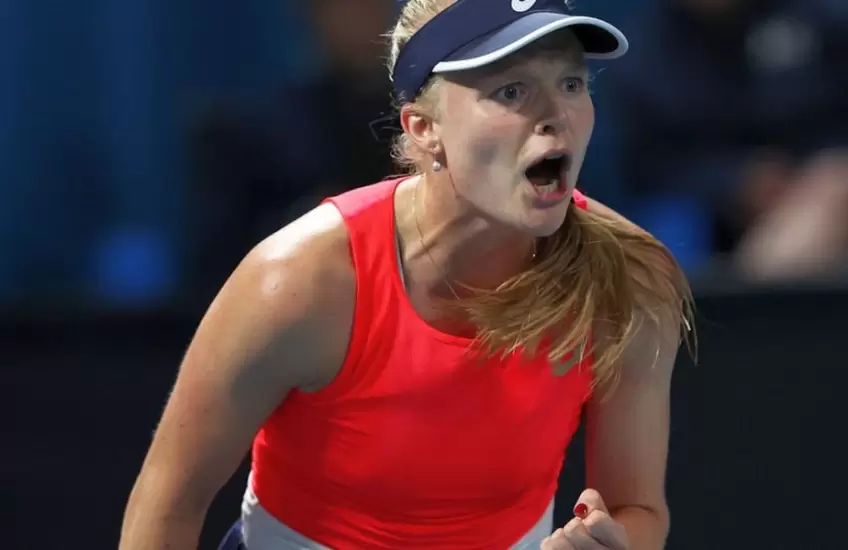
British tennis star Harriet Dart is the latest player to be featured in the Behind the Racquet series by American tennis player Noah Rubin. The 23 year old Dart talks about how she did not feel comfortable talking to the other players around her at difficult times like the illness of her grandfather.
"I was studying forensic psychology at the time. I set goals of where I wanted to be after a year and if I didn’t move in that direction I was thinking of putting up the racquets. It gave me the option if things weren’t making me happy.
After the first year of studying, it becomes more of a workload, so I had to make the choice of whether I would stick with studying or tennis. It was my father who originally told me to study and have a backup, not to be so close-minded.
It helped me play much better at the time. It may not have been the best preparation to study at 2 am before matches but it took my mind off the pressure, made me feel relaxed on the court. As much as we all complain about tennis, I think everyone’s going to miss the feeling and emotions that come with being on court.
It’s quite hard to replicate but it’s something that we don’t really talk about. It’s sad that girls don’t feel comfortable opening up. They feel that if they open up to one person it will get around to everyone in the WTA.
A fear that if they open up even a little bit that they become exposed. I have kept a lot of moments to myself as well. One of the most difficult times for me was when I was away at a tournament and my grandfather had a stroke.
It is my mum’s father and my mother was with me at the time. It was that moment when you pick up the phone and immediately know it’s bad news and who it’s about. At that moment all I wanted to do was go home, but my mother convinced me to stay and compete, as that was what my grandfather wanted for me.
While playing all you have in the back of your mind is what if something gets worse. Weeks before the news I’d get so upset losing a match but after a moment like this you begin to realise it really means nothing in the grand scheme of things.
As soon as I was done with the two events I went back home to see him. It was heartbreaking to see him unable to speak for himself at the time. Another side effect was paralyzation on one side of his body and really poor short-term memory loss.
When he forgets that you visited that day it can really hurt but I try to visit whenever I can now that he is in a home. I am beyond close with my grandparents. They were the ones who got me into tennis, brought me to Evert Tennis Academy when I was nine years old.
They did a lot for my sister and I when we were younger because our parents worked long, full-time jobs. I can’t do much but I do everything I can, after all he has done for me. Just the other day I bought him an extra pillow just to bring some comfort to him.
It has been toughest on my grandma to take care of him. They have been married for over 50 years. She visits him every day. It truly is love. It puts everything in perspective. Here is someone that did so much for me and was so successful but now he can’t endure much.
It’s allowed me to take a lot of things in easier because in the end I am just looking for health, especially for him. I think I was in a deluded state for quite a long time that he would make a full recovery, but I think it is important to celebrate him still being here and all he has done.
He was a great tennis player himself and always tried to help me improve in my own game. Even though he is forgetful at times, he still remembers the big events. He was always the one taking my clippings from the newspaper. It’s s**tty that everyone gets older, and I am thankful for everything he does for me. I just can’t forgive him for not giving me his lefty forehand”.
